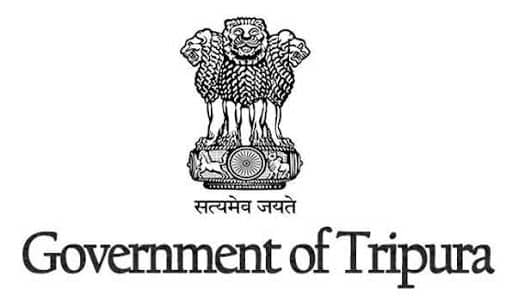Agartala: Tripura, a strategically important state in India’s Northeast, is witnessing a concerning administrative trend: a significant number of newly recruited Indian Administrative Service (IAS) officers are opting out of the state cadre within just a few years of joining. Most of these officers have sought inter-cadre transfers on marital or personal grounds, leaving a growing leadership vacuum in the state’s already strained administrative structure.
Over a Dozen Officers Exit Between 2019 and 2023
According to official records, around 12 IAS officers from batches between 2019 and 2023 have left the Tripura cadre, seeking transfers to states such as Bihar, Rajasthan, Tamil Nadu, Haryana, Uttar Pradesh, and Himachal Pradesh. The bulk of these transfers were requested under the All India Services (Cadre) Rules, which allow for inter-cadre movement on the basis of marriage.
While these rules aim to facilitate family life for officers, their cumulative effect on a small cadre like Tripura is significant. The state, which already grapples with a shortage of experienced officers, is now facing mounting challenges in governance and service delivery.
Notable Transfers from Tripura Cadre
Here are some of the recent high-profile transfers that have contributed to the drain in bureaucratic manpower:
Mr Krishna Chandra Gupta (IAS:2021:TR) was transferred to Bihar after marrying Garima, a 2022-batch IPS officer from Bihar.
Ms Charu (IAS:2022:TR) moved to Rajasthan after her marriage to Sujit Shankar, a 2020-batch IPS officer.
Mr Rajdeep Singh (IAS:2021:TR) shifted to Himachal Pradesh, post marriage to a Karnataka-cadre IAS officer of the same batch.
Ms Shrestha Sree (IAS:2022:TR) transferred to Rajasthan following her marriage to Mridul Singh, an IAS officer from the 2020 Rajasthan batch.
Mr Himanshu Mangal (IAS:2023:TR) moved to Tamil Nadu after marrying Vaishnavi Paul, a 2023-batch Tamil Nadu cadre officer.
Mr Rahul Modi (IAS:2020:TR) was transferred to Haryana in 2023 following his marriage to Deepti Garg, an IPS officer from Haryana.
Ms Sanya Chhabra (IAS:2019:TR) secured a transfer to Uttar Pradesh after marrying Ankur Kaushik, a 2019-batch IAS officer from UP.
Ms Sonakshi Singh Tomar (IAS:2016:TR) had earlier moved to Himachal Pradesh under the Centre’s Physically Handicapped (PH) category in 2019.
TCS Officers Bear the Brunt
The exit of these officers has placed a disproportionate burden on Tripura Civil Service (TCS) officers, many of whom are now managing dual or triple responsibilities due to the dearth of IAS officers.
According to media reports, a senior official in the state secretariat expressed concern, stating, “We are facing an operational bottleneck. TCS officers are competent, but they are overstretched. District-level governance and implementation of key policies are at risk due to the administrative void.”
Calls for Policy-Level Intervention Grow Louder
Administrative experts and civil society members are urging the state and central governments to step in. Suggested measures include–
- Retention bonuses for officers posted in smaller or challenging states.
- Incentives for difficult postings.
- Leadership training and promotion incentives for TCS officers to compensate for IAS vacancies.
While inter-cadre transfers are crucial for maintaining a healthy work-life balance for officers, the Tripura experience reveals the vulnerability of small cadre states in maintaining a stable and effective administrative framework.
Looking Ahead
As Tripura navigates these challenges, there is a pressing need to rethink policies around cadre management and officer retention. Without timely intervention, the cumulative impact could lead to long-term administrative instability in the region.



























